“Smart Society-Enabled Activities to Enrich Your Social Life”
In May 2024, a group comprising seven EHE students, two faculty members, and one staff member
embarked on a 10-day, grant funded educational journey to the University of Tsukuba in Japan. The focus was on cultivating an understanding of the “Inclusive Smart Society,” particularly in the context of sports and leisure activities. The itinerary was diverse, encompassing lectures, tours of academic institutions and industry facilities, participation in Judo and Archery classes, hiking Mount Tsukuba, and exploring Tokyo’s landmarks. The participating students represented undergraduate, Masters, and Doctoral programs within EHE.
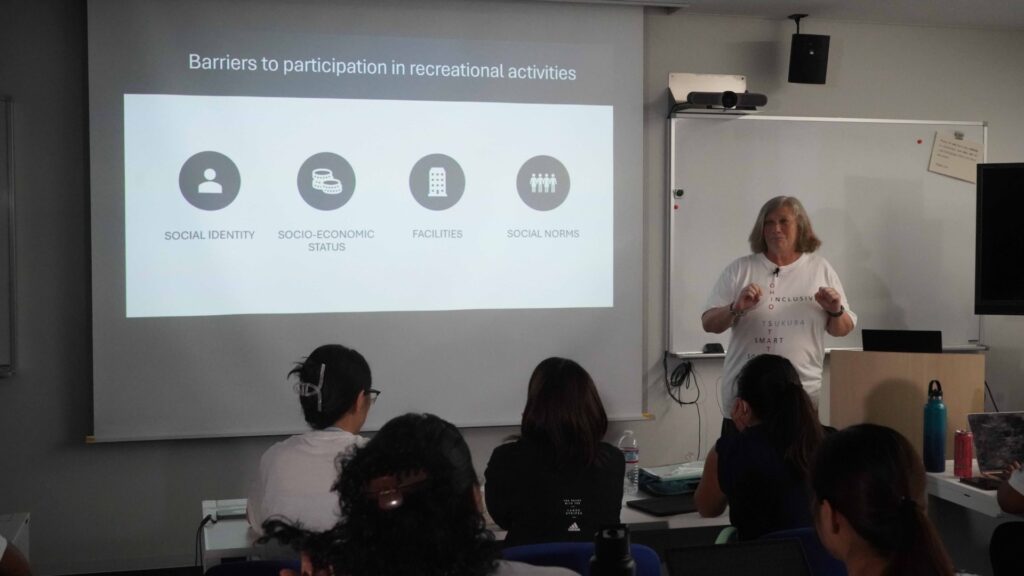
During the visit, Human Sciences faculty members Sue Sutherland and Jackie Goodway delivered lectures alongside their counterparts from UT on the topics: “Think BIG …..Work Small: Developing Motor Competence in a Smart City” (Goodway), “Leisure and Wellbeing,” and “Disability and Sport: Inclusive Smart Society II” (Sutherland).These sessions were attended by both EHE students and their Japanese and International peers from UT. The lectures were recorded and will represent three of seven total modules in the Inclusive Smart Society II course, which is part of a broader COIL program set to commence in October 2024. As part of her itinerary, Carlotta Penn, Senior Director of Partnerships and Engagement, met with UT administrators and faculty to strategize future grant-related endeavors.
Funding for this visit was generously provided by the University of Tsukuba MEXT grant: the College of Education and Human Ecology is a primary collaborating unit, with Ohio State University serving as a grant partner institution. Through this collaboration, both the University of Tsukuba and the College of Education bolstered their longstanding institutional partnership. This visit also actualized a primary goal of the MEXT grant: fostering cross-cultural exchange among 5,000 students and faculty through initiatives like COIL and mobility programs, while also laying the groundwork for future educational exchanges.
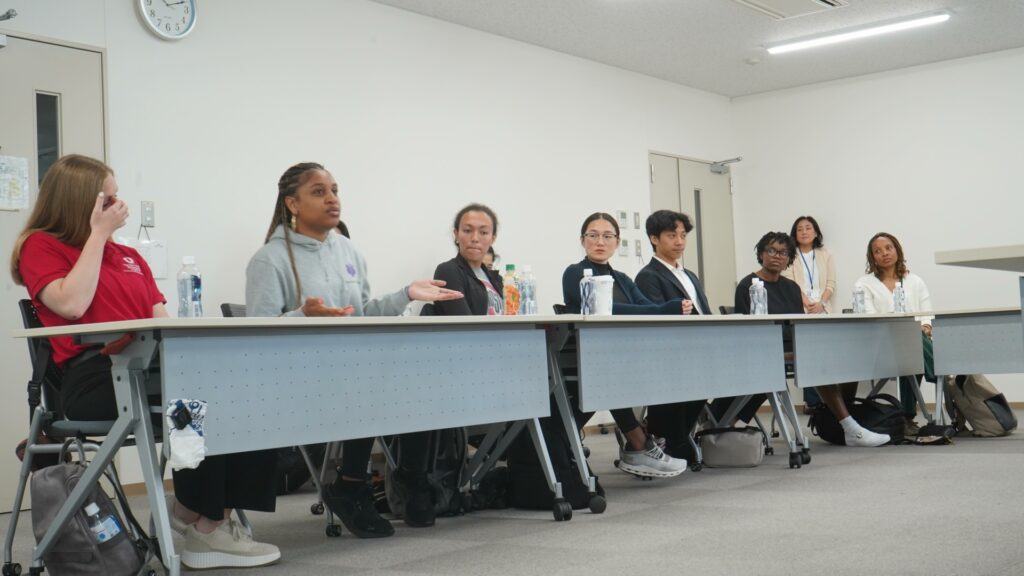
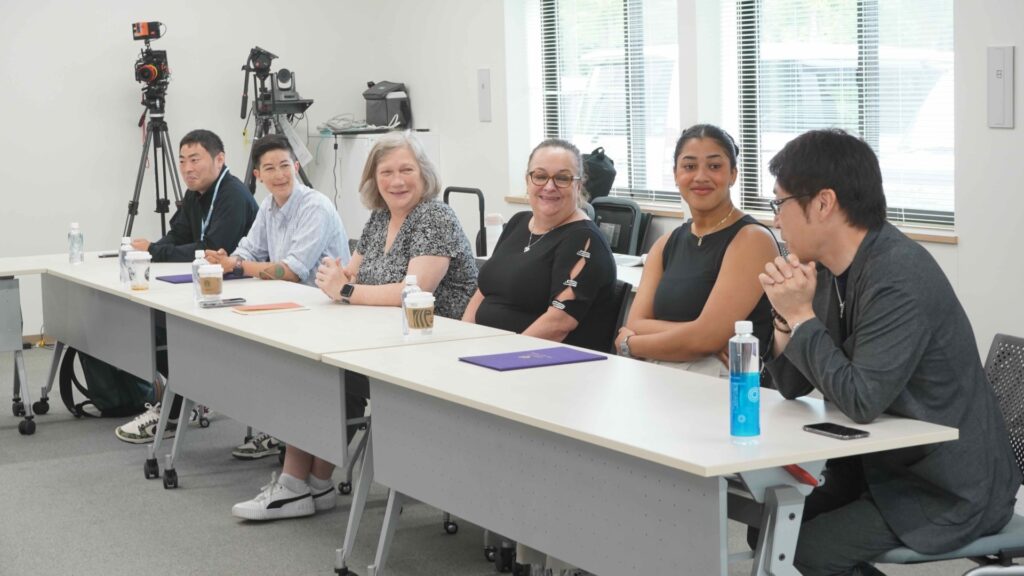


Faculty and Staff Leads
College of Education and Human Ecology
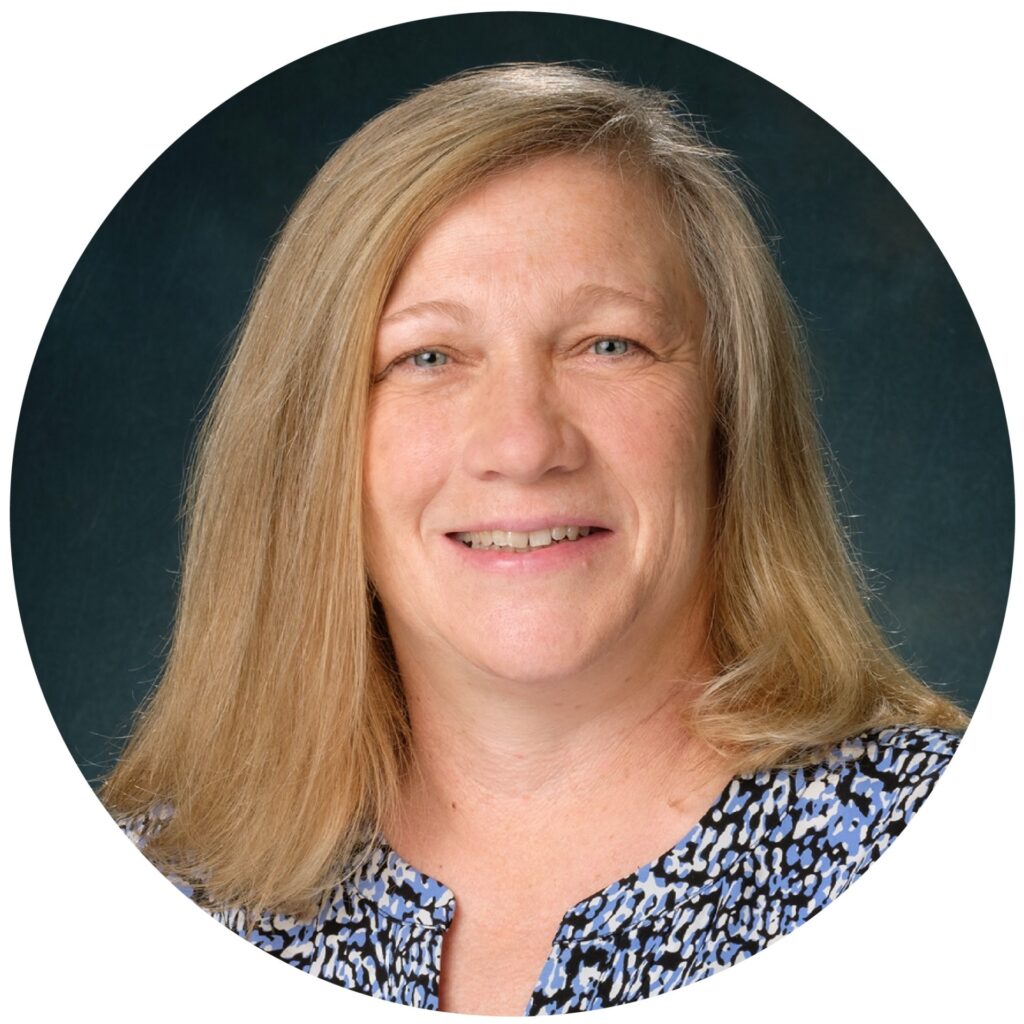
Sue Sutherland, PhD,
Associate Chair of
Curriculum, Program Chair,
Kinesiology
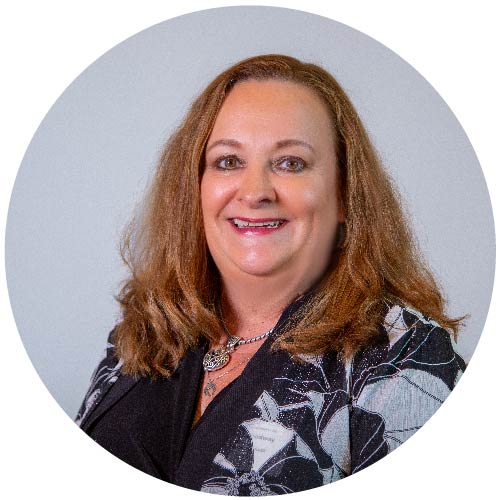
Jackie Goodway, PhD,
Professor of Kinesiology,
Program Chair, Kinesiology
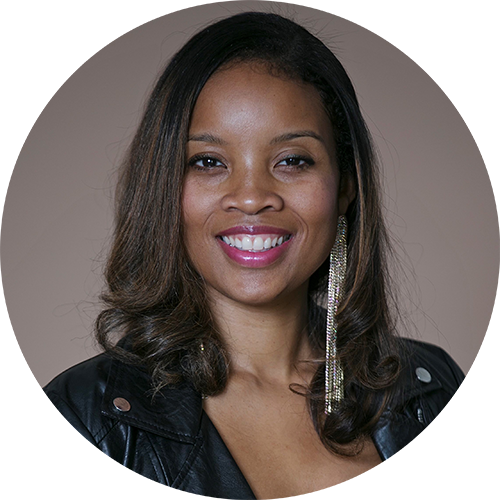
Carlotta Penn, PhD,
Senior Director of
Partnerships and
Engagement, EDGE
University of Tsukuba Faculty
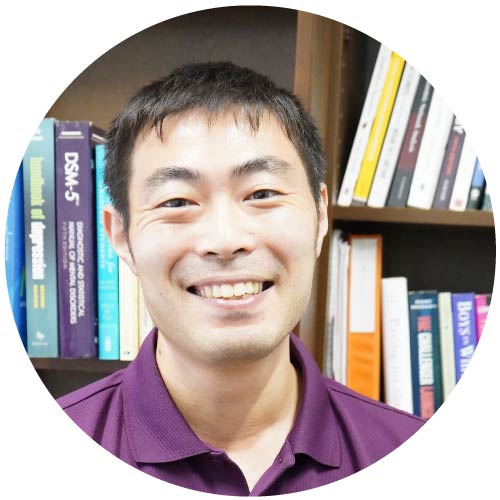
Shinichi Nagata, PhD, CTRS
Assistant Professor, Institute of
Health and Sport Sciences
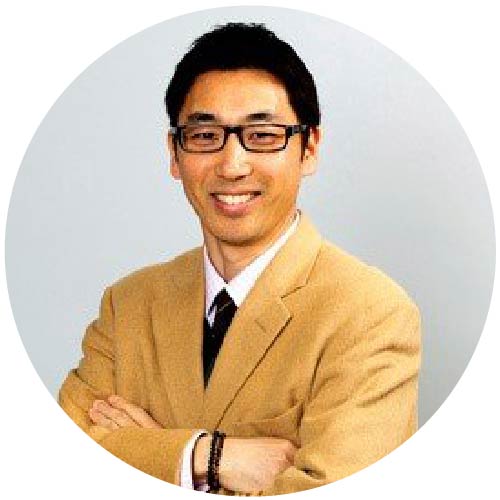
Takahiro Sato, PhD,
Professor, Institute of
Health and Sport Sciences
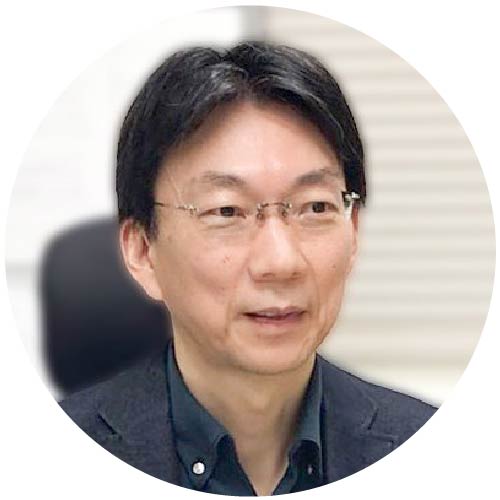
Seiji Ono, PhD,
Professor, Institute of
Health and Sport Sciences

Student Stories
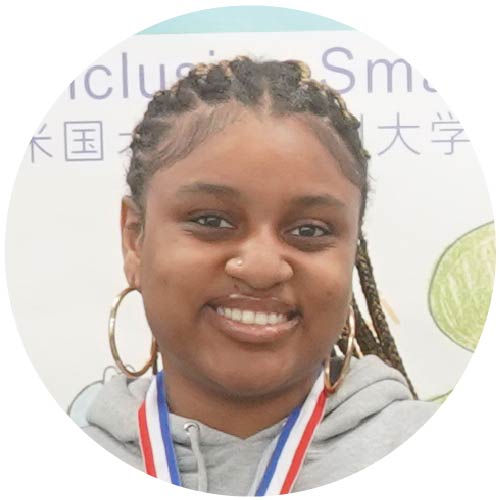
Dazjah Best
Undergraduate Student
Hello, this is Dazjah Best. I would like to thank everybody responsible for giving me the privilege of being a part of such an amazing experience abroad. I appreciate being able to be in the presence of so many great people and peers that I can look up to and are doing things similar to what I plan for myself in the future. Thank you, Taka, for being such an amazing host and leader. Words can’t explain how much this trip has made me more appreciative and aware of how different and culturally shocking it can be when you enter a whole new part of the world that you aren’t used to. On this week-long trip, I feel like I have learned more than I have a whole university semester socially, culturally, economically, etc. Being able to interact with the students and people who live in Japan was a lovely experience that I will never forget. I wonder if this country will ever reach the common peace and respect that is constantly expressed in Japan. Thank you to Taka, TIAS Students, Tsukuba Ambassadors, and everyone who participated in the TSI project. It is truly an experience that I will never forget and holds memories that I will cherish forever.”
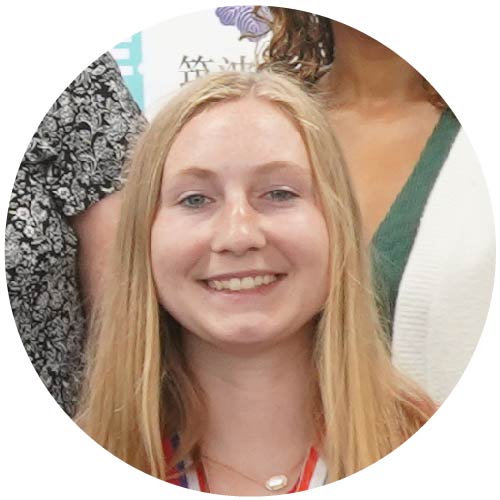
Chloe Kin
Undergraduate Student
This experience was even more than I could have hoped for. Japan is a beautiful place with a wonderful culture and wonderfully kind people. The respect I witnessed from children to their elders, among peers, and towards myself as an outsider was nothing like what I have experienced in America. Seeing this and the academically and athletically renowned University of Tsukuba opened my eyes to just how big the world is and just how little I know about it. I would love to return to Japan in the future, though based on my current academic trajectory, sadly I do not believe I will be able to study at UT. However, this experience taught me a valuable lesson that I will take with me into my career as a physician.
Before this trip, I had spent time working in healthcare and helped treat non-English speaking patients. In these situations, a translator app was used, and I did not think anything of it because all the information seemed to be exchanged. This trip was my first time being in a place where I did not speak the major language of the area. I now see just how stressful this experience may be for patients. The helplessness I felt trying to order food with the aid of pictures simply, I’m sure, is minuscule compared to the helplessness, stress, and anxiety non-English speaking patients may feel when worried about their well-being in the American healthcare are system. Due to this experience, I now have a better understanding and can better empathize with patients who may not speak the same language as me. This experience was one of the most amazing of my life and it has prepared me to be a better physician.
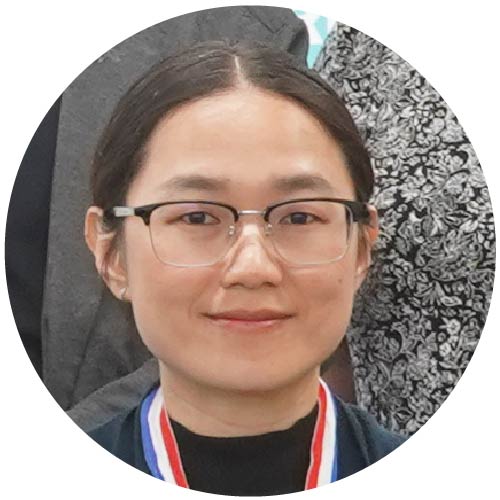
Lin-Hsiang Kang
Doctoral Student
First of all, I am truly grateful for the opportunity to participate in the SMART City program at the University of Tsukuba. It is commendable that the government is willing to fund the design of a SMART city that embraces diversity and inclusiveness. This visionary approach is impressive. A distinctive feature of this program is its focus on the overall well-being of people, which is a crucial aspect of a SMART city.
Bringing together experts in Kinesiology from around the world not only introduces innovative ideas to contribute to the development of the SMART city, but also fosters various collaborative opportunities between faculty and students on both sides. New collaborations and connections have been established through this interaction, and I eagerly anticipate all the upcoming opportunities.
Lastly, I am deeply thankful to all the faculty and staff who made this program possible. It has broadened my research and academic horizons and helped me form valuable relationships with individuals who share the same vision of making the world a better place.
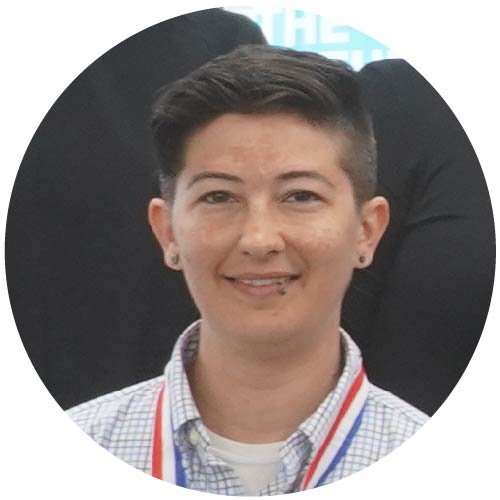
Sam Meyerhoff
Doctoral Student
The time I spent in Japan as part of the Ohio State University and University of Tsukuba exchange has transformed my life. The meaningful memories made in Japan with other Ohio state students was amazing, but what truly enriched this trip was meeting, learning, and sharing with the TIAS and Tsukuba students. The kindness shown to us through interactions, tours, and cultural experiences was inspirational and I will hold them in my heart for years to come. Experiencing judo and Kyudo was not only fun, but a cultural immersion of respect, tradition, and honor in each respective discipline. One extremely memorable event was joining the activity class with the physical education undergraduate students. As a PhD student studying physical education, this experience was extremely valuable to me. The universal language of play allowed all of us to work together to accomplish tasks and play games as we laughed and shared with one another. The friendships I made during this 10-day trip are ones I will cherish for my lifetime and will serve as the beginning to collaborations of research and education.
Another important highlight of this trip was spending time in Tsukuba, Ibaraki and living in a smart city. The idea of and design of the smart city forefronts inclusion for technology and different abilities at the heart of city planning, this is something I had never experienced until this trip. It has made me hopeful for the future with examples of how to support people who are typically left out when planning a city or society; people with different physical or cognitive abilities, international residents, and all ages of residents. Tsukuba is an example of a city for everyone, when we plan with diversity in mind, more people can experience life with ease, independence, and happiness.
This exchange was engaging, enlightening, and more than I could have dreamed of. I am so thankful for this opportunity to travel, learn, and grow alongside my fellow Ohio State students and the University of Tsukuba students alike.
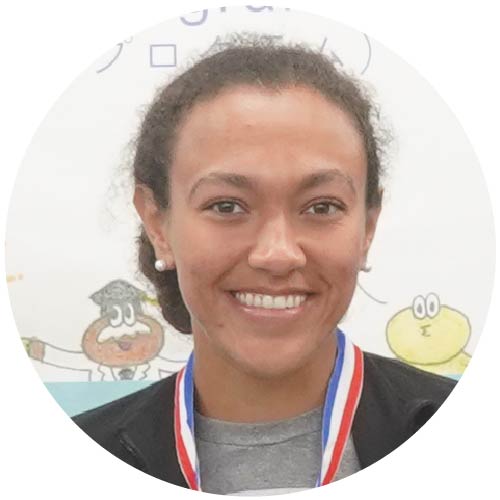
Mikayla Colvin
Master’s Student
I would like to express my gratitude to all the faculty at The University of Tsukuba and The Ohio State University for inviting me and organizing this amazing trip to Japan. I will forever be appreciative of the educational opportunities, cultural experiences, and relationships created during my time with the students and faculty at the university. One of my favorite days of the trip was when we visited the largest virtual reality studio in the world and learned about the role of cybernetics and robots in rehabilitation. As someone with a background in sports and exercise psychology, I found the VR studio interesting in that, on a large scale, simulation can be used for sports training and skill development. I also have an interest in working in the clinical setting of rehabilitation, so the cybernetics lab was eye-opening to learn more about the use of cybernetics and robots in neurological rehabilitation. Another aspect of the trip that I thoroughly enjoyed was immersing myself in the culture and practices of Japan. I valued learning about Japanese traditions, practicing Japanese sports like Kyudo and Judo, and interacting with everyone in Japan. The mutual respect and societal harmony in Japanese culture made a lasting impression on me and I look forward to carrying those values with me, both in my professional and personal life. I gained so much from this experience and will always value the knowledge and relationships I built during my time at the University of Tsukuba.
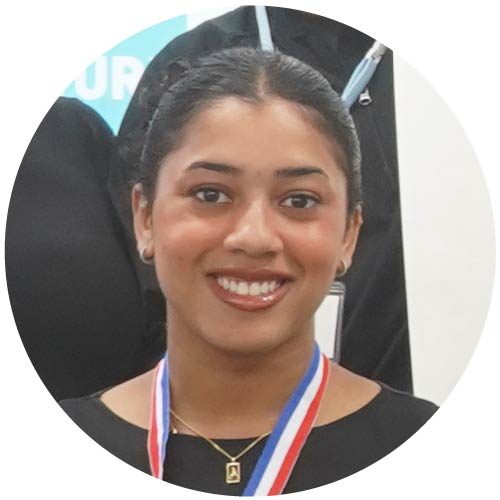
Aydan Jordan
Master’s Student
My time in Japan served as a poignant reminder of a lesson I’ve learned time and time again: the people we encounter shape our experiences in profound ways. Throughout my journey, the connections forged with fellow students and faculty members from Tsukuba and Ohio State University transformed my trip into an unforgettable and enriching experience.
The dedication of those involved in administering the program was evident in every interaction. Despite their busy schedules, they generously shared their knowledge and experiences with us, making themselves available to impart valuable insights. Dr. Randeep’s impromptu presentation on proteomics, a field unfamiliar to many of us, left a lasting impression and taught us the vitality of rice.
Moreover, Taka’s initiative to arrange a meeting with students and faculty from the University of Chulalongkorn in Thailand further enriched our experience. This cultural exchange provided invaluable opportunities for dialogue and collaboration, fostering a deeper understanding of global perspectives within the academic community.
Every moment of my journey felt purposeful and enriching, thanks to the unwavering support and guidance of those involved. Their commitment to facilitating meaningful exchanges and fostering cross-cultural connections exemplified the transformative power of interpersonal relationships in academic exploration.
I am overwhelmed with gratitude for the opportunity to have been a part of this transformative experience, where every encounter, discussion, and cultural exchange left an indelible mark on my academic and personal development.
I would like to express my gratitude to all the faculty at The University of Tsukuba and The Ohio State University for inviting me and organizing this amazing trip to Japan. I will forever appreciate the educational opportunities, cultural experiences, and relationships created during my time with the students and faculty at the university. One of my favorite days of the trip was when we visited the largest virtual reality studio in the world and learned about the role of cybernetics and robots in rehabilitation. As someone with a background in sports and exercise psychology, the VR studio was interesting to me in that on a large scale, simulation can be used for sports training and skill development. I also have an interest in working in the clinical setting of rehabilitation, so the cybernetics lab was eye-opening to learn more about the use of cybernetics and robots in neurological rehabilitation.
Another aspect of the trip that I thoroughly enjoyed was immersing myself in the culture and practices of Japan. I valued learning about Japanese traditions, practicing Japanese sports like Kyudo and Judo, and interacting with everyone in Japan. The mutual respect and societal harmony in Japanese culture made a lasting impression on me, and I look forward to carrying those values with me in both my professional and personal life. I gained so much from this experience and will always value the knowledge and relationships I built during my time at the University of Tsukuba.
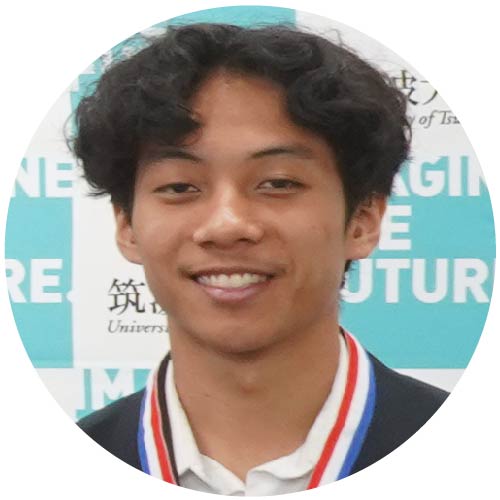
Brandon Lam
Master’s Student
I am extremely grateful for having received the opportunity to visit the University of Tsukuba. This gratitude goes to the faculty from both universities that made this possible and the students at UT that went above and beyond to not only guide us but make us feel welcome. It was enriching being able to tour the cutting-edge facilities and projects that are going on at UT, but what I was most impressed with was the culture. There was so much respect. That’s something that you may struggle to find in the US at times. In Tsukuba it was in everything. Respect that wasn’t just people but even for the environment, the facilities, and sports. I was completely blown away. I hope to be back sooner rather thank later..
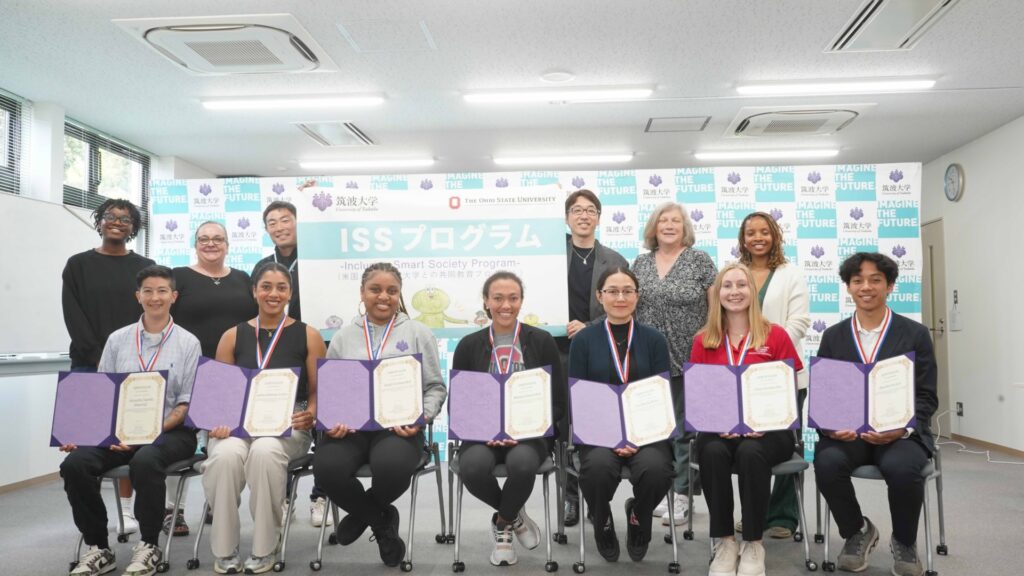
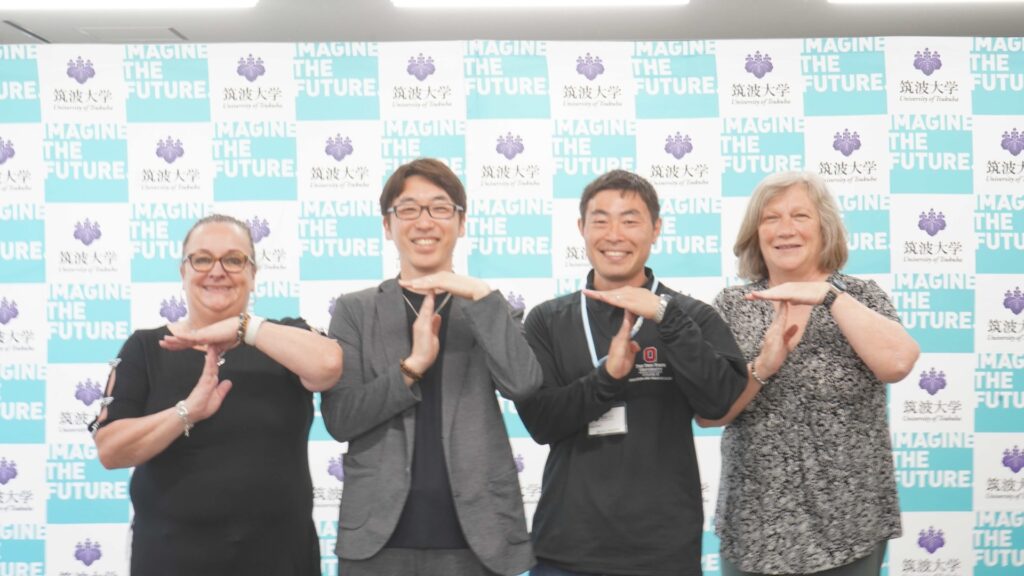
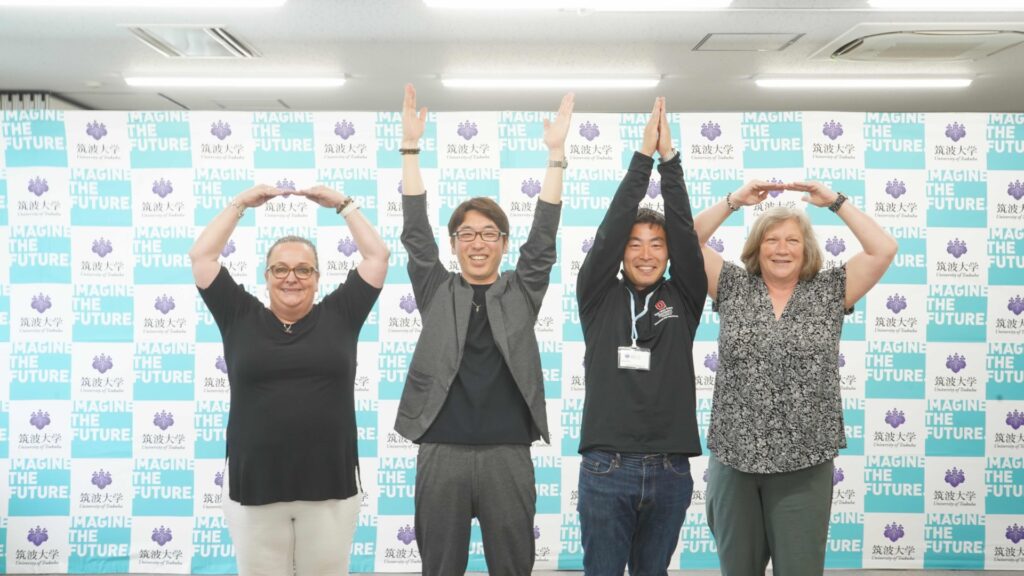
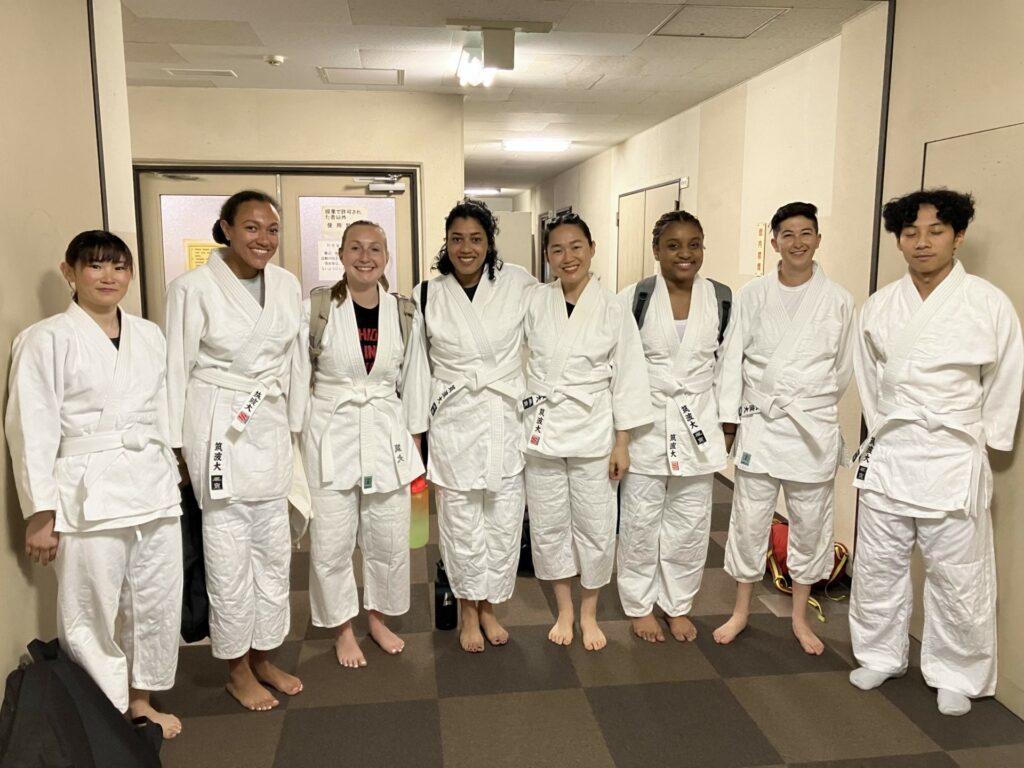
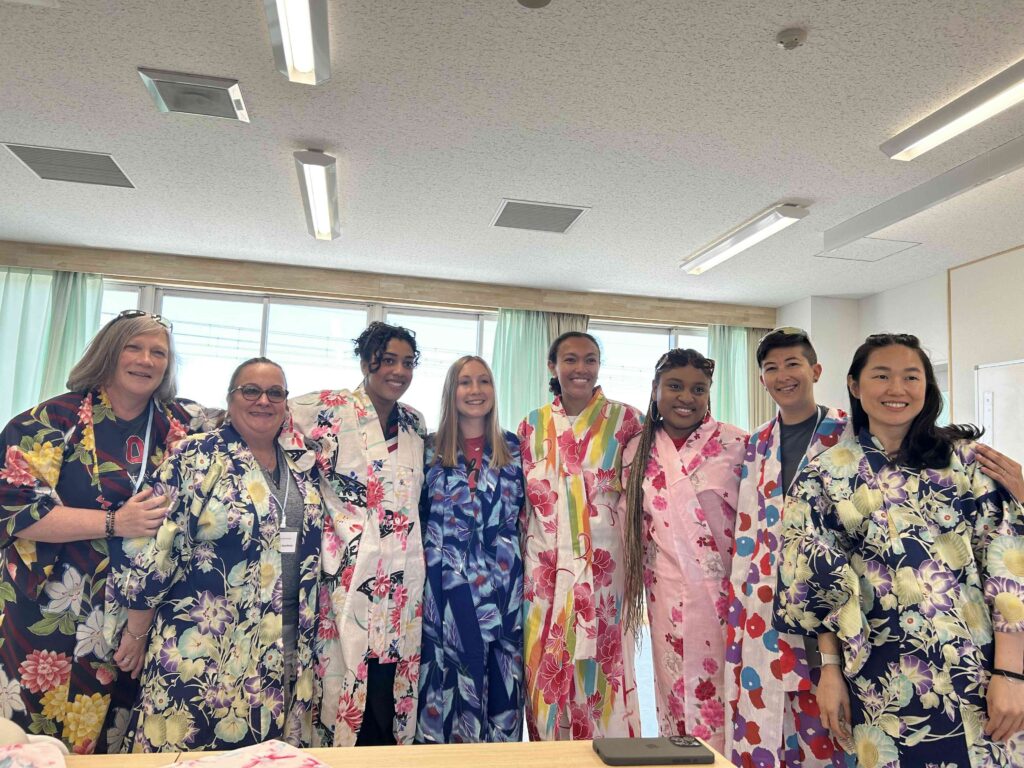
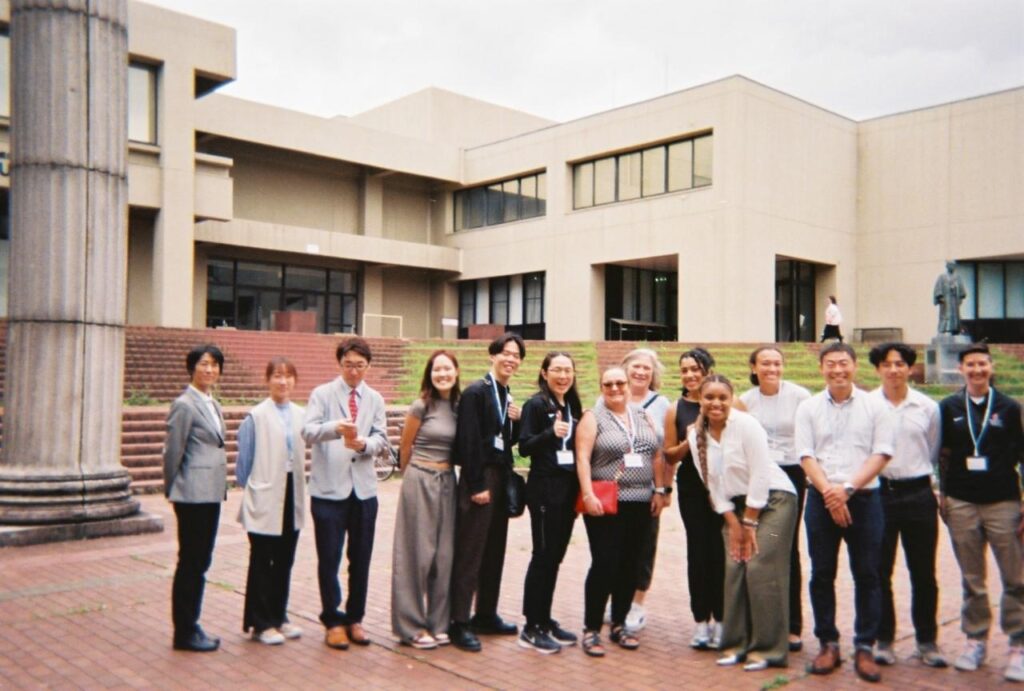
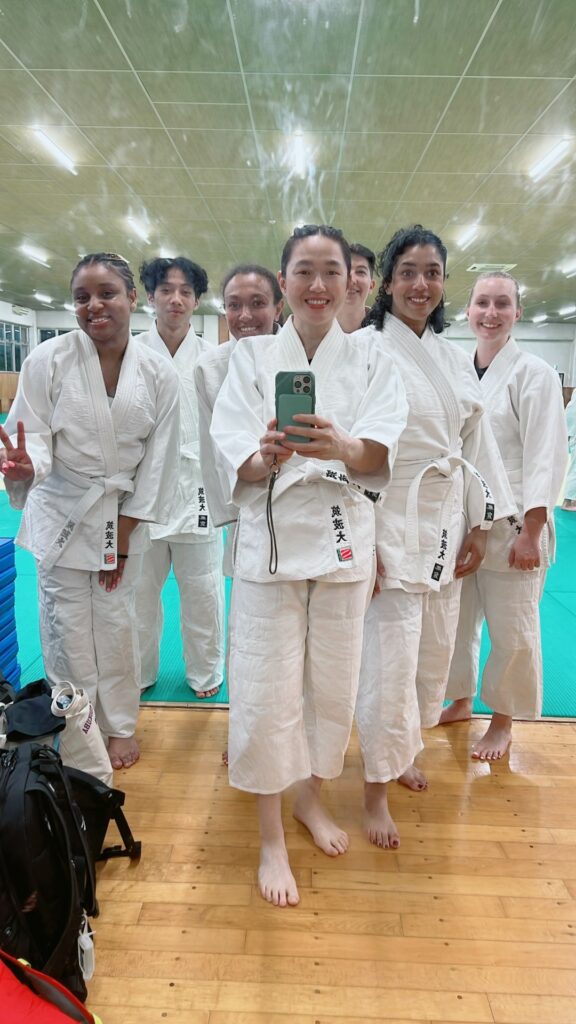
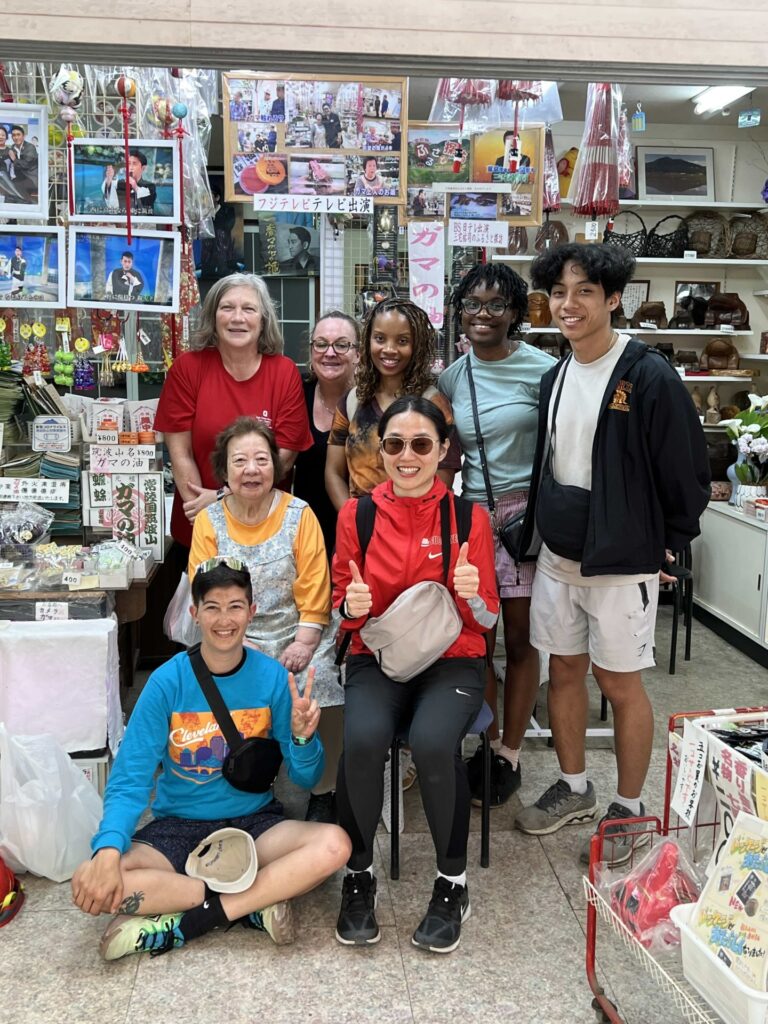
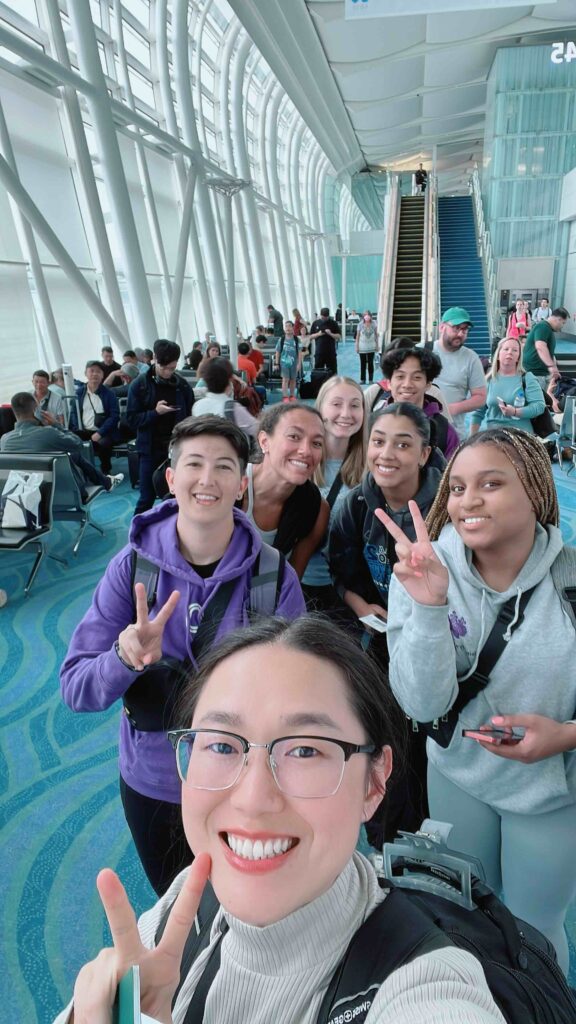
MEXT – The Ministry of Education, Culture, Sports, Science and Technology
The Inclusive Smart Society Project is comprised of 4 components:
- Inclusive Smart Society I: “Technologies for Achieving Diversity and a Multifaceted Smart City”
- Inclusive Smart Society II: “Smart Society-Enabled Activities to Enrich your Social Life”
- Project Based Learning
- Summer Institute
Student Engagement Goal: 5,000 students from UT and Ohio State combined
Timeline:
- 2023: Grant is funded
- March 2024: Pre-course activities begin
- October 2024: ISS I begins
- January 2025: ISS II, PBL begin
- May 2025: Summer Institute
Grant Partners – EHE Faculty and Staff
- Carlotta Penn (Administrative Lead)
- Jackie Goodway, Sue Sutherland, Peter Paul (Faculty Leads)
- Danene Fast, Tiffany Wild, Matt Brock

